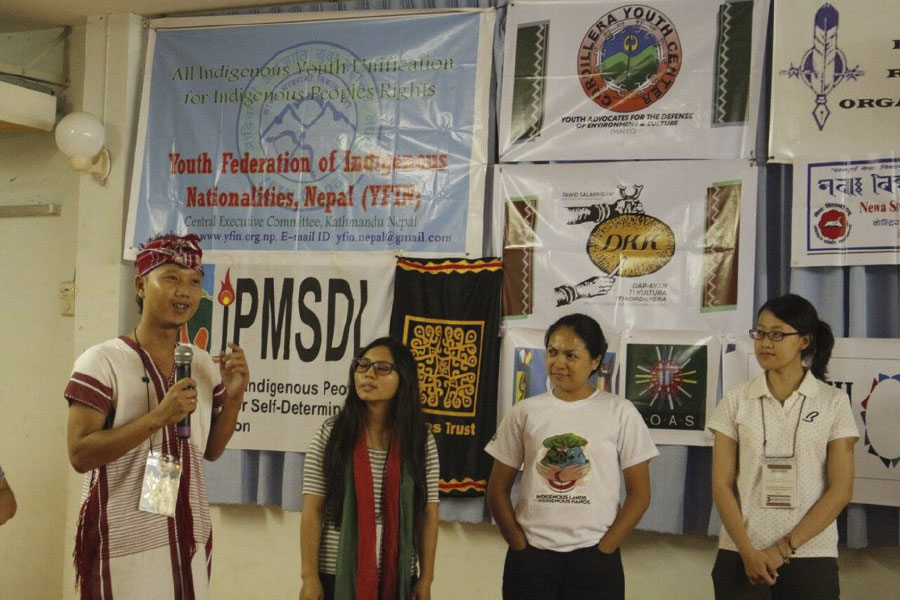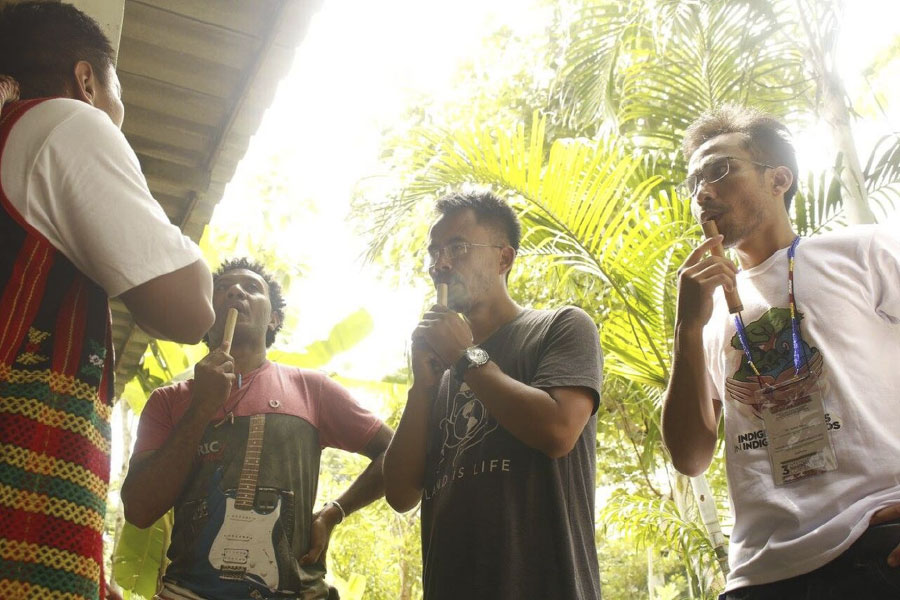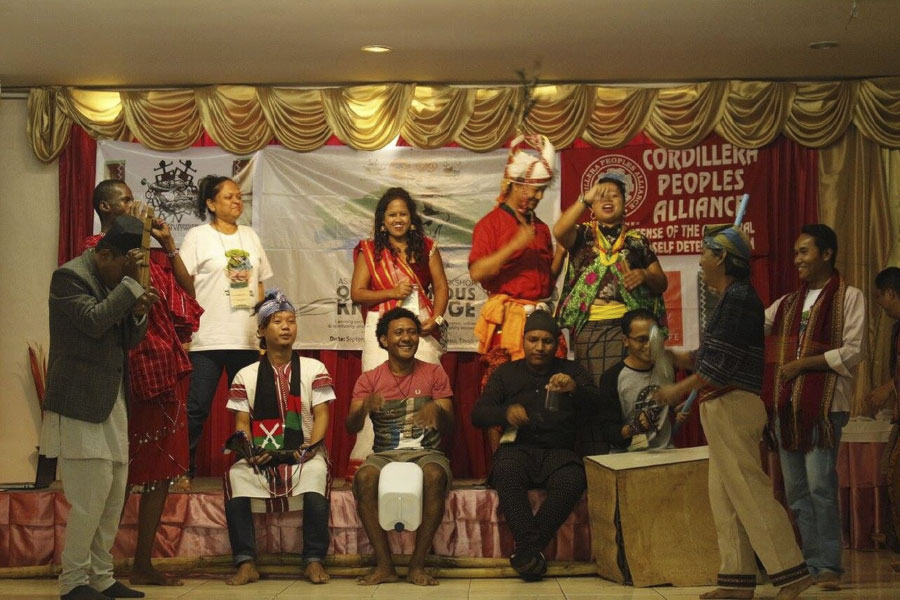Gather indigenous youth with the fervour to learn and re-acquaint themselves to their indigenous roots, then let them listen to the words of wisdom of their elders. Give them the opportunity to travel and encounter fellow indigenous youth of other cultures and countries, and let them immerse in the issues and concerns of indigenous communities.

The entire project launched a series of dynamic exchanges and discourse of hundreds of indigenous youth and elders, first in the Philippines, then at the regional workshops participated by Asia and the Pacific indigenous elders and youth in Thailand. Samin Ngach Nach of the Cambodia Indigenous Peoples Alliance gratefully stated that “The workshop is very useful for all of us because we learn a lot from the elders and the activities by sharing what is important about our traditional knowledge.”

It was not only the youth being informed and empowered because the elders who drew their stamina from the contagious enthusiasm of the youth acknowledged a leap in their awareness of the challenges that the indigenous youth confronted such as their minimal role in decision-making in their communities and the threats to their indigenous territories that they are to inherit.
Elder Joni Odocho of the Hiko Village in Thailand advised the participants that “Young people must look into the root causes of the problems, then find ways to solve the conflicts. These can be found in the belief system, power, measure of resources over human rights, over benefits or interests especially about money. I’m old now, I probably cannot solve these conflicts. You can find the solutions.” Anish Shrestha of Nepal’s Newar Students Association concurred because he believes that “It’s very important in modern society like now, when the indigenous youth have been forgetting their roles. This is a great opportunity to learn and share from the elders.”
The Indigenous Peoples’ convergence was a deeply meaningful interaction where participants not only came to grasp the harsh realities of indigenous peoples in the Philippines but also learned the various indigenous dances, music, songs and chants of different indigenous groups in the country.

The political and cultural exchange forged the solidarity of young indigenous peoples in the host country and the region. Vedora Jessica Peter of Belia Jaringan Orang Asal Semalaysia, Malaysia was amazed that “… although we all are from different countries, I know that we all have the same fight as indigenous peoples. When we perform our dance and we speak a different language, we still can communicate nicely with each other and we make it happen.”

Learning is a timeless experience. The late elder Benedict Solang from the Cordillera, Philippines beamed with pride as he summed up the entire process of transmitting indigenous knowledge and values formation to the indigenous youth in Asia when he addressed the participants, “With all of you, active youth, there certainly is hope for our struggles. If the elders are the moon, you are all the stars in the horizon shining bright moving forward. Let us continue our international solidarity to advance indigenous peoples’ rights and the rights of all the exploited and oppressed peoples of the world.”
The indigenous youth participants firmed up their linkages and continuing collaboration on learning methods. Valuable insights and data were shared in the regional workshop that contributed to the development of a training module on indigenous knowledge for the indigenous youth. This and the production of video-documentaries will be used by the indigenous youth as educational tools in the active and sustained promotion of positive traditional knowledge.

Before the participants made their separate ways, they had an initial planning on how to move forward from the conference. There were unities and commitments of the participants to strengthen their respective organizations on the ground and some even resolved to form National Indigenous Youth formations in their countries with the objective of expanding and consolidating their membership and training new leaders. In this way, they can also help strengthen the regional Young Indigenous Youth Network as a whole.
Inspired by the exchanges of the elders and fellow youth, some expressed their interest to replicate the cultural exchange at the local level. This will be an opportunity for them to learn more about their own culture from the elders and youth from the community and share it in future activities such as the Asia Cultural Exchange.
The indigenous youths are definitely keeping the flame of indigenous culture alive, and the elders are hopeful.
The project entitled “Indigenous Peoples’ Learning Center for the Transmission of Indigenous Knowledge and Values Formation among Indigenous Youth in Asia” was supported by the Pawanka Fund and implemented by Asia Pacific Indigenous Youth Network on July 1, 2015 – June 30, 2016.
